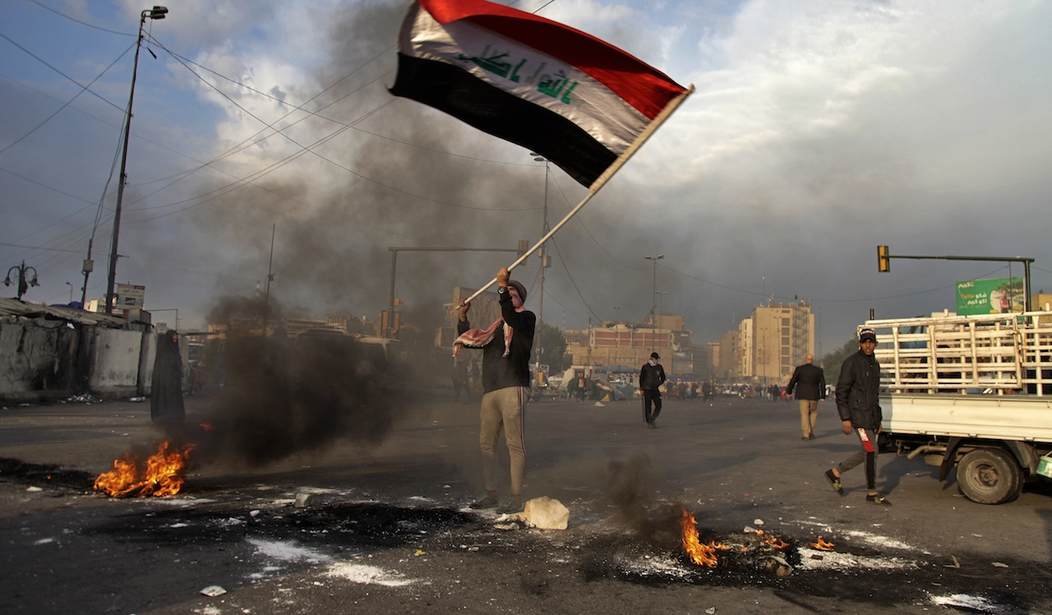The prospect of Iran acquiring a nuclear weapon remains one of the greatest threats to global security, and will likely as such as the year 2022 gets underway. Political responses to that threat have been developing for nearly two decades, but a definitive solution remains elusive. In its absence, the crisis has continued to inch forward, to the point that some experts regard the Iranian regime as being only several weeks removed from nuclear weapons “breakout.”
That timetable makes it clear that the international community must regard the issue as a top-line priority when setting policy for the year 2022. Western powers should aspire to halt Iran’s progress toward nuclear weapons capability within the first weeks, if not the first days after the New Year.
Of course, this realistically cannot be accomplished via the strategy that the US, Britain, France, and Germany doggedly pursued throughout the past year. Experience demonstrates that negotiations with the Iranian regime can drag out indefinitely, with that same regime advancing its malign activities all the while. Indeed, that is exactly has been happening with respect to the Iranian nuclear program and the 2015 agreement known as the Joint Comprehensive Plan of Action.
The US pulled out of that agreement in 2018, with then-President Donald Trump decrying that agreement as one of history’s worst and citing Iranian violations of both its letter and its “spirit.” Iran eventually formalized its violations in response, and the speed with which its nuclear program returned to its pre-2015 status ultimately confirmed that the JCPOA had never really succeeded in lengthening Iran’s breakout time.
Since then, the window has grown smaller and smaller. In early 2020, the regime declared that it would not abide by any of the restrictions imposed by the JCPOA. Though it was not clear that the regime had ever been fully compliant in the first place, its open violations soon led to uranium enrichment reaching a new high level of 60 percent. What’s more, in 2021, the new head of the Atomic Energy Organization of Iran, Mohammad Eslami, claimed that the country’s stockpile of uranium enriched to the earlier high of 20 percent fissile purity had grown to more than 120 kg.
Recommended
That announcement came at a time when the US, under a new president, was working with the JCPOA’s European signatories to try to restore the agreement. But Eslami’s leadership of the AEOI was the result of Iran’s own change of leadership, which halted the regime’s participation in negotiations among the signatories in Vienna. Iran’s hardline president, Ebrahim Raisi, kept those talks in a state of limbo for more than five months and apparently resumed them at the end of November only out of concern that Western interlocutors were preparing to walk away.
The latest round of the Vienna talks confirmed that Iran’s change of tactics is not a change of strategy. The regime remains committed to delaying the JCPOA restoration process for as long as possible, during which time it remains free of the penalties that the deal’s collapse would impose. At the same time, Iran is still advancing its nuclear activities to an unprecedented degree, installing new cascades of advanced centrifuges and thus preparing to very quickly carry out further enrichment of its large stockpile of 20-percent enriched uranium, and thus acquire enough weapons-grade material for one nuclear weapon.
Iran accomplishing that goal would drastically change the geopolitical balance of power and create a catastrophic situation to last all of 2022 and beyond.
The international community’s best strategy for quickly halting Iran’s progress toward nuclear weapons capability is to not only keep up the pressure that is currently being applied to that issue but to also link this issue with the various others and to fully exploit the vulnerability that Tehran is trying to alleviate by demanding relief and offering nothing in return.Since the end of 2017, the leading Iranian opposition group, the People’s Mujahedin Organization, which is part of the National Council of Resistance of Iran (NCRI), has made tremendous progress in its efforts to facilitate popular unrest with the aim of overthrowing the country’s theocratic dictatorship. The regime itself acknowledged in January 2018 that the oppositional group was primarily responsible for a nationwide uprising that was then ongoing. A similar message about the role of the organized Resistance was widely shared during an even larger uprising in November 2019.
Although the scale of public protests declined following the onset of the coronavirus pandemic, it has lately resumed its growth, especially in the wake of the Ebrahim Raisi’s “election” to the presidency through a process that the vast majority of Iranian citizens boycotted. Iranian state media is now filled with constant warnings about the prospect of another uprising. Although the oppositional group and other Iranian activist groups are prepared to work toward regime change entirely on their own, they have long demanded a change in Western paradigms regarding Iran policy. Therefore, political support for those groups could go a long way toward intensifying the domestic pressure Iran is now feeling.
At a minimum, this strategy would compel Iran to reconsider the depth of its commitment to provocative nuclear activities in the midst of a worsening economic crisis. Ideally, though, dual pressures from both inside Iran and beyond its borders would finally lead to the current regime collapsing in the year ahead, thereby bringing an end to the years-long nuclear crisis as well as each of the various crises regional and global crises that clearly bear the clerical regime’s fingerprints.

























Join the conversation as a VIP Member